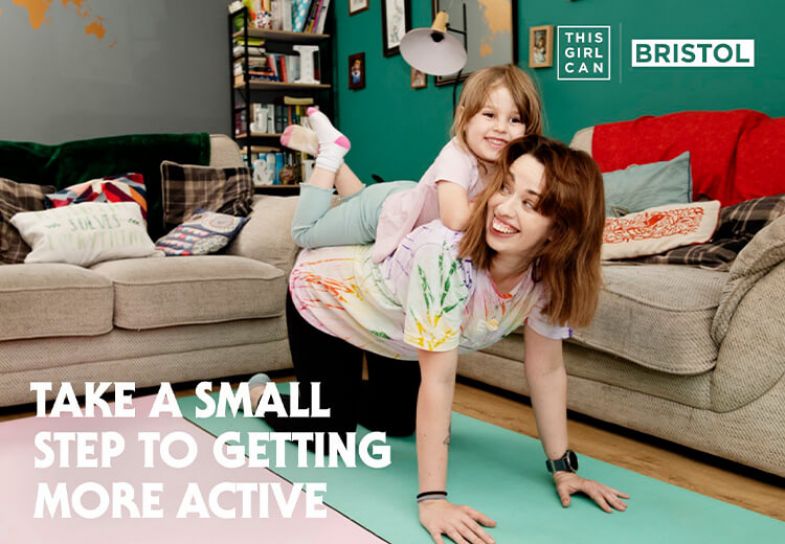
Understanding the challenges of physical activity for mothers of pre-school children – supporting better relationships through small steps. The Bristol Girls Can social marketing project.
Research by Dr Fiona Spotswood
Everybody knows that an individual’s free time is dramatically reduced by parenthood, but research from public health has shown that for mothers, physical activity is one of the first things to go. Being too time-poor for exercise and having the right kinds of support in place is particularly an issue for mothers from lower socio-economic backgrounds. The impact of lower activity levels can be huge on a woman’s mental and physical health.
The Bristol Girls Can social marketing project, funded by Sport England is managed by Claire Nicholls at Bristol City Council. It aims to break down barriers to exercise and inspire more women to get active. The project was based on rigorous qualitative research, including that by Dr Fiona Spotswood, Senior Lecturer in Marketing at the University of Bristol Business School.
Dr Spotswood’s research focused on the way, for mothers, physical activity must compete with everyday mothering routines. The first set of findings, published in Sociology of Health and Illness, focused on timetables that dominate mothering, exploring how physical activity often gets ‘pushed out’ of everyday life for mothers.
The second set of findings focused on the capabilities mothers need to be able to make the most of the opportunities for leisure time that are on offer. Dr Spotswood explained “A whole number of factors need to be in place for mothers to take part in physical activity. Those things are quite complicated and often lacking for mothers with pre-school children living in the least affluent parts of the city.”
The third set of findings focused on how important mother’s bodies are in shaping their relationship with exercise. Mothers compared their lived experience of a sensing, suffering body with cultural ideals of exercise that are dominated by images of effortlessness, thinness, and fitness.
Together, these findings highlighted the kinds of messaging that would resonate with the target audience of mothers in deprived areas of Bristol and the kinds of physical activity sessions that would appeal. This shaped the resulting social marketing programme developed by the Bristol Girls Can campaign.
Project manager Claire Nicholls from the Communities and Public Health Team at Bristol City Council told us “Fiona’s research was crucial for this campaign, as it fed into the wider marketing campaign.”
The Bristol Girls Can campaign has seen huge success in supporting women to make change and get moving. The website and social media presence were developed to meet the needs of the community as defined in Dr Spotswood’s research, reaching over 100,000 people.

























